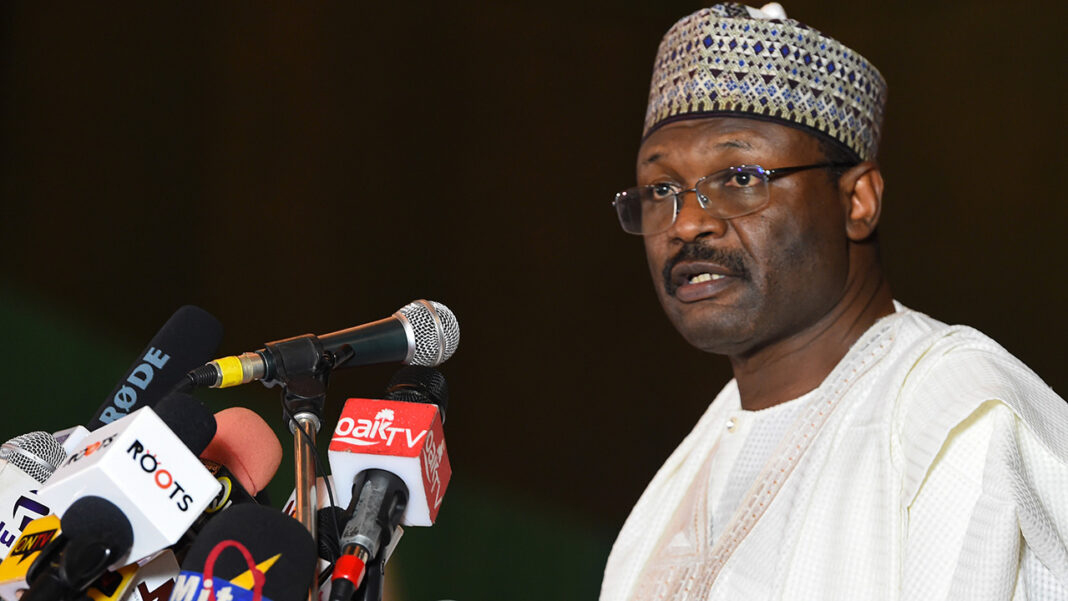Prof. Mahmood Yakubu, the Chairman of the Independent National Electoral Commission, INEC, says no eligible Nigerian will be left out in the electoral processes leading to the 2023 general election.
Mr Yakubu said this at the presentation of the 2022 Revised Framework and Regulations for Internally Displaced Persons, IDPs, voting, ahead of 2023 poll in Abuja.
He said that ahead of the 2015 general election, INEC introduced the idea of voting by IDPs which was revised and validated in 2018 for the 2019 general election.
“Today, the same policy has been revised and is being presented to stakeholders for review and validation in preparation for the 2023 general election.
“The idea is to ensure that no eligible Nigerian is left out of the electoral process on account of displacement, disability or other circumstances that may limit citizens’ participation in the electoral process.
“What is presented to stakeholders today has taken into consideration several developments since the last review and validation exercise in 2018.
“First, is the increased number of IDPs as a result of widespread insecurity nationwide. Secondly, to incorporate not only the displaced citizens arising from armed conflicts but also natural emergencies such as flooding,” Mr Yakubu said.
“Thirdly, to align the framework with the provisions of the Electoral Act 2022, specifically Section 24(1) which empowers the Commission to ensure that, as far as practicable, no Nigerian is disenfranchised on account of displacement by emergency situations.
“Finally, to align the framework with the national policy on internally displaced persons 2021.”
Mr Yakubu urged stakeholders to contribute to the discussion at the validation meeting to enrich the framework as well as the regulations for voting by IDPs, saying INEC looked forward to a robust collaboration with stakeholders for voter education and sensitisation for the IDPs.
“I will like to appreciate our development partners for the continuous encouragement and support as well as all stakeholders for your presence.
“We look forward to your contributions to enable us enrich and finalise this important document ahead of the 2023 general election,” Mr Yakubu said.
The Chairman, House Committee on INEC, Dr Aishatu Dukku commended the commission’s commitment to inclusivity in the electoral process.
She commended INEC response to stakeholders’ requests by organising IDP’s voting operation in the State of Emergency, SOE, states in the 2015 and 2019 general election.
“The policy document proposed by INEC to guide the conduct of IDP voting operations and bring the IDP communities into the voting net stakeholders is worth applauding and support from all.
“There is need to also improve on the framework and the Regulations and Guidelines for Voting by IDPs which will drive IDP voting operations for the 2023 general election.
“The commission should draw lessons from the 2015 and 2019 experience and efforts made and also consult with other knowledge holders at state and national levels, and also in consideration of international best practice.
“That will ensure that the framework document and the regulations and guidelines, are grounded on practical realities,” Mr Dukku said.
NAN






